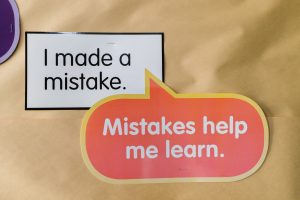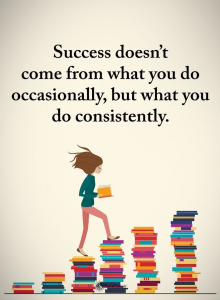I know I’m biased, but learning another language is one of the most useful things I’ve ever done apart from learning how to use a spoon. Languages have got me free drinks on holiday, mains boxes moved quicker onsite and discounts on contracts.
If learning a new language is on your resolutions list, here are 8 simple steps to help you reach that goal
In this blog:
- Set realistic expectations and goals
- Maximise your time
- Maximise your resources
- Don’t be shy!
- Listen to people’s mistakes
- Make sure you practise all four skills: speaking, reading, writing and listening
- Understand how you like to learn
- Finally…THE MOST IMPORTANT POINT
-
Set realistic expectations and goals

This starts with the language you choose. Questions to ask yourself:
- How much time do I have to dedicate to learning?
- Why do I want to learn this language?
- Do I need to learn a new alphabet?
- How different is the grammar from the language I already speak?
Setting goals is important as it keeps you motivated AND helps you track progress.
Set your goals based on why you’re learning the new language. If it’s so you can use it on holiday, aim to be able to order dinner in a restaurant in that language by your next holiday. If you want to work in a new country, you could set a more serious goal and book yourself onto exams (there are internationally recognised examination levels in lots of languages).
-
Maximise your time!

Learning a language doesn’t have to take up hours that sometimes you just don’t have. Make use of dead time and / or just do things you’d normally do but in the language you’re learning. Some examples:
- Read a book or magazine in your new language on your journey to work
- Listen to something in that language while working out or travelling. It doesn’t have to be constant talking, it can be a normal radio station so you can listen to music you like and the DJ chitchatting in between
- Learn 5 new words while on the tube or train (but be sure to use them so they stick)
Learning doesn’t have to be a chore!
-
Maximise your resources!

You need to encounter (see, hear or say) the same word in different contexts multiple times before your brain says ‘ok, I’ll remember you’. There are SO many resources you can use to help your brain pay attention, whether paid for or free. Some examples:
- Read books (kids’ books are great for beginners), magazines or newspapers in foreign languages. On most apps and e-readers you can click on a word and either have it automatically translated or you can set-up your preferred dictionary and share the word to this dictionary
- Watch a series in the language you want to learn (with or without subtitles, depending on how brave you’re feeling)
- Have lessons, if you have budget for this (you can actually find lessons quite cheaply). This can be group, 1-2-1, online or in person
- There are lots of free language exchanges you can join for 1-2-1 or group practice
-
Don’t be shy!

Practice speaking whenever you can. Try and pronounce words like a local, or you’ll sound like Del Boy.
-
Listen to people’s mistakes

If you’re trying to learn French, for example, you can glean clues to the language by listening to a French person speak your language and the mistakes they make. The mistakes are normally a direct translation from their language, so if you translate back, you can learn how you’d say it in French. As an example, I noticed French people used to say ‘I will see with them’ instead of ‘I’ll check with them’, which is a direct translation of French ‘je vais voir avec..’
-
Make sure you practise all four skills: speaking, reading, writing and listening

Some will come easier to you than others. I find it’s mainly reading and writing that’s easiest (which is why I translate rather than interpret), but it differs for everyone.
-
Understand how you like to learn

Some people remember what they see better than what they hear. Some people need to put things into practice. There are also certain times of day that I find things sink in more. Take all this into consideration when learning.
-
Finally…THE MOST IMPORTANT POINT: CONSISTENCY

SO many people say they can’t learn a language. I agree, like any subject, that languages are easier for some than others, but that doesn’t mean you can’t do it. I think people are too quick to put their language learning down to ability, when they should be looking at their consistency:
- It takes more than just a few months to be able to have a conversation
- If you don’t use it, you lose it. Anyone remember everything they studied at school? No, because you don’t use it. The same goes for languages. If you study solidly for a few weeks, have a break for a few months and then go back to it, you will very likely have forgotten a whole heap. This isn’t because languages aren’t for you. This is normal and where consistency is key.
Learning a language is a continuous goal to improve. No one knows all the vocabulary in their own language, so learning it in another language will take some time, but it will be rewarding!
“To learn a language is to have one more window from which to look at the world” – Chinese proverb
TranslateAble provides translation, interpreting, subtitling, transcription and live captioning in all major languages and more. For more information please contact TranslateAble at info@translateable.com.
Happy learning!



